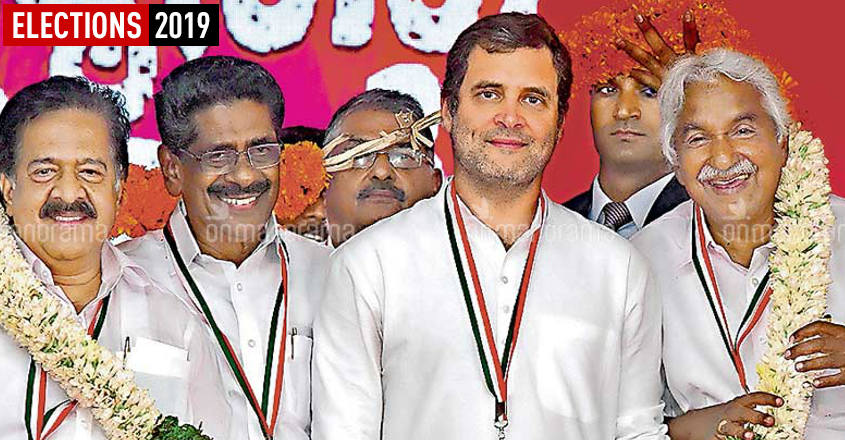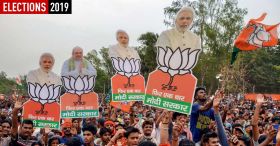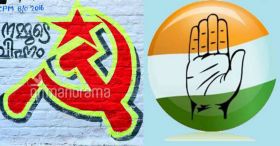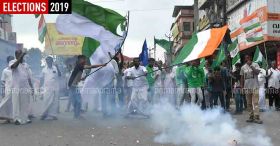
By afternoon it was almost clear that Kerala, and Kerala alone, had made a desperate attempt to keep the BJP out of Delhi. The near clean sweep has a heroic edge but it turned out to be too insignificant a political message in the face of what is now described as the “second Modi wave”.
Perhaps in the hope that the Congress alone could stand up to the rampaging Hindutva forces led by Narendra Modi, voters in Kerala turned out overwhelmingly in favour of the UDF. Though a commendable win, it would still be seen as a lot tragic as the rest of the country, especially the North, was swept by the BJP.
Equally tragic seems to be the fate of the state BJP. While the party had worked wonders nationally, its performance went south in the state. Except in Thiruvananthapuram, the party could not put up a fight in other places where it was supposed to do exceptionally well, even win.
It can now safely be concluded that the party had failed to win even a large chunk of majority votes with its aggressive Sabarimala campaign. Though the figures are still not available, it seems that the BJP has not managed to increase its vote share to even 15 per cent; during the Assembly polls it had secured 16 per cent.
In other words, the party has badly messed up what its state president P Sreedharan Pillai had quite arrogantly called a 'golden opportunity'. K Surendran's candidacy in Pathanamthitta, the constituency seen as Hindutva's political laboratory in the state, turned out to be a major let down. He might end up third. The minority consolidation in Pathanamthitta seemed so intense that Surendran was not leading even in Poonjar, the constituency of BJP's pre-poll ally P C George.
Given the seemingly heavy minority consolidation in favour of the UDF, the responsibility for the failure cannot be fully pinned on the performance of the LDF government. Nonetheless, chief minister Pinarayi Vijayan's handling of the Sabarimala issue, especially his perceived haste to get the Supreme Court verdict implemented and his decision to sneak in two women into the hill shrine, might have repelled the majority community, including those who had traditionally voted for the Left.
It is also said that the CPM's hypocritical stand on women might have also played a part in its defeat in Palakkad, Kannur and Vadakara. The party was instrumental in forging a 'women's wall' but an impression had gained ground that it had no qualms about protecting those accused of female abuse like P K Sasi MLA. The twin murders in Periya, Kasaragod, too may have influenced voter decision in Malabar.
It can also not be disputed that whatever gains the BJP had managed, it was at the cost of the LDF. The surprise surge for Congress's V K Sreekandan in Palakkad, a CPM bastion held by the hugely respected M B Rajesh, is testimony to the huge loss of faith in the LDF. Alathur, another stronghold of the Left, was easily taken by greenhorn Ramya Haridas.
It is now also clear that the pre-poll alliance Pinarayi had struck with the Pulayar Mahasabha and with the Ezhava community to an extent, which many observers called the state's 'Mahagatbandhan', failed big time.
Both the need to keep the BJP out and Pinarayi's apparent failings may have done the LDF in. Questions about Pinarayi's leadership strategy, too, could possibly be raised at this juncture.
Rahul Gandhi's massive win in Wayanad could at the most be a relief for the Congress president and his party. His presence might have even accentuated the minority consolidation in at least the Malabar constituencies like Kozhikode, Vadakara, Kannur and Kasaragod. However, the Gandhi scion stands discredited as a leader nationally.






